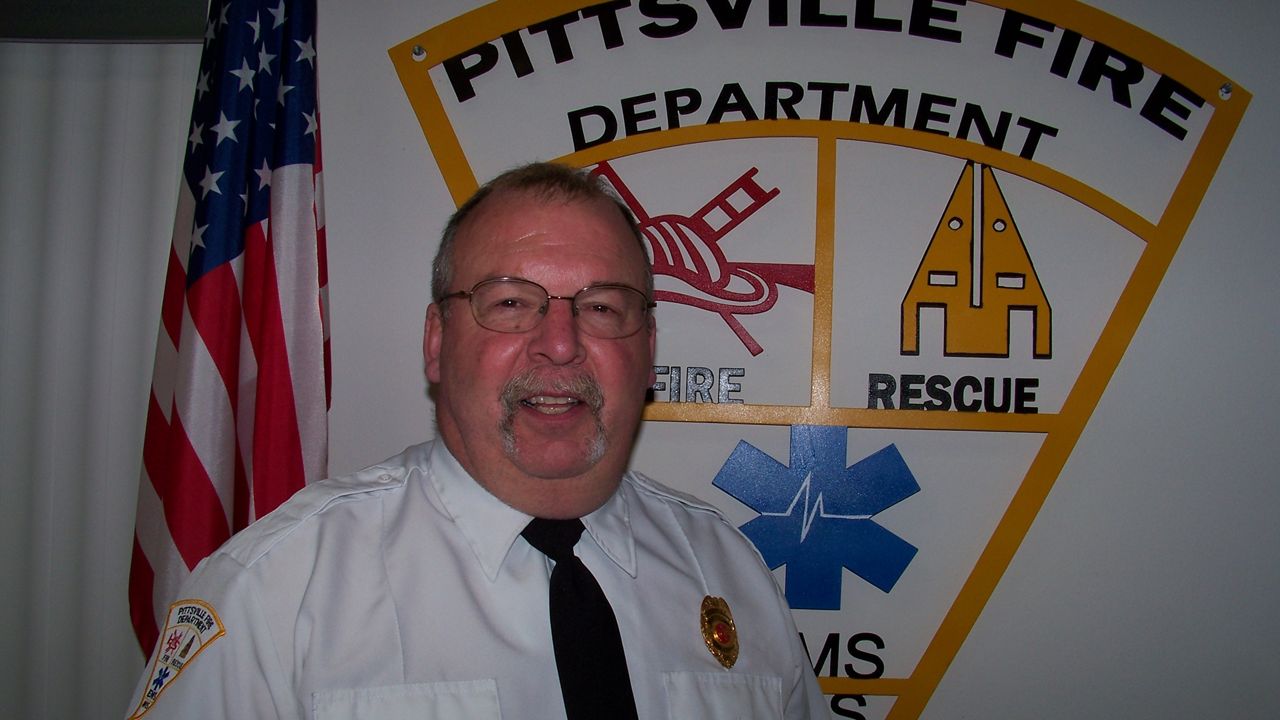Jerry Minor made a promise to a friend 21 years ago, the same friend who, 20 years before that, told Minor that if he took action, he could save lives.
What You Need To Know
- Pittsville fire department chief Jerry Minor has been honored by the Wisconsin Farm Bureau with its Hero of Hope award
- Minor, with the help of the National Farm Medicine Center, started an agriculture rescue program in 1981 that has benefitted Wisconin's rural communities
- The program was stopped in 2001, but restarted three years ago after Minor saw a huge turnover in firefighters and EMTs, and new safety concerns on Wisconsin farms
Minor did indeed act. And because he did, not only were hundreds of funerals avoided across the state of Wisconsin, but those who survived have played an integral role in keeping the economies of rural communities humming along.
This year, the Wisconsin Farm Bureau noted Minor’s efforts and dedication and named him its Heroes of Hope award winner. The Heroes of Hope campaign aims to identify people who have helped bring hope to farmers or businesses, either in large or small ways.
In Minor’s case, it’s been in a large way. Very large.
It began in 1981 for the Pittsville Fire Department chief, when Minor and a small group of colleagues were teaching auto extrication through the National Farm Medicine Center That’s when Dr. Dean Stueland approached Minor with a question.
“He asked us, ‘Is there anybody teaching agricultural rescue, when a farmer gets caught in a corn picker and so on and so forth?’’’ said Minor.
Nobody in Wisconsin was. Minor said when he looked at basic EMT textbooks, there was no discussion of farm accidents of any kind.
“And back then, we were just talking about getting caught in a piece of equipment,’’ he said. “Today, we have a whole gamut of possible injuries. And the bigger concern was, ‘OK, we have a patient caught in a piece of equipment. The equipment is still running. How do we keep the fire rescue and the EMS people safe when they’re on a farm?’ So we started a program with the Farm Center called Farm Accident Rescue.’’
And for the next 20 years, Minor and his team traveled around the state, teaching rural fire departments how to deal with different hazards on a farm. In 2001, the program stopped.
“The feeling was, we had the market saturated,’’ said Minor.
But three years ago Minor asked that the program be reinstated. He knew there was significant turnover among EMTs and firefighters, there were more hazards on farms to be concerned with, and there was that promise he made.
“One of the things we talked about before he left,’’ Minor said of Dr. Stueland, who passed away in 2000, “was to keep doing what we’re doing. So he’s always been my personal driving force.’’
And there was one other concern that had Minor’s attention.
“Today, losing a firefighter to any injury or to any fatality is catastrophic to the department,’’ he said. “We don’t need that, not today. We have staffing levels that are critical. Keeping people safe. How do you keep them safe? You train them well. So that’s been the answer.”
And Minor knew losing a farmer today is just as devastating.
“You lose a farmer in a small community, it has this massive ripple effect,’’ he said. “It may not happen right away, but over a couple of years, you’re going to see that farm where the fatality was, or the major incident, the farm is probably going to dissolve, depending upon who the injured person was. So how does that affect the local economy? It affects … it’s everything.”
So the National Farm Medicine Center held an auction and raised $53,000, and in the next four years Minor said the goal is to teach 500 fire and rescue personnel in agricultural rescue.
Ashleigh Calaway, who runs a farm with her husband and in-laws in the Pittsfield area and works for the Farm Bureau, knows she sleeps better at night knowing her local fire department is equipped to handle anything that may come up.
“I work with a lot of different volunteer fire departments,’’ Calaway said, “and when I talk about what we have in Pittsville, they’re always intrigued and amazed by the extent of training and work that goes into it. That our fire departments are ensuring that no matter what call they receive on the farm, they’re ready to go. I mean, these are life-saving measures they’re practicing constantly.
“Jerry is the person who calms your fears, dries your tears and makes your worst days a little better. For those of us who work in rural communities, he is a Hero of Hope answering the call to serve others in ways we can never thank him enough.”
Story idea? You can reach Mike Woods at 920-246-6321 or at: michael.t.woods1@charter.com
June 6 Editor's Note: The National Farm Medicine Center has been edited to reflect it's correct title.




